Mahoba (UP), Aug 21 (PTI) Taking suo motu congnisance of his recent remarks on rape, a local court has summoned Samajwadi Party supremo Mulayam Singh Yadav on September 16.
Civil Judge (Junior Division) of Kulpahad Tehsil Ankit Goel took congisance of Yadav’s statement on rape on August 18 in Lucknow, where he had said while one man commits rape, four are named to “settle scores” and that rape by four persons was not “practical”.
The SP supremo had said there were instances where only one person committed rape but the victim named four people merely to “settle scores”.
The summons have been issued under sections 3 and 4 of Indecent Representation of Women (Prohibition) Act, 1956 and under IPC sections 504 (intentional insult with intent to provoke breach of the peace), 505 (statements conducing to public mischief), 509 (word, gesture or act intended to insult the modesty of a woman), 116 (abetment of offence punishable with imprisonment).
New Delhi, Aug 21 (PTI) After a long “dormancy”, the country’s investment cycle is showing signs of recovery and to sustain this trend the government needs to step in as “investor and enabler”, a Standard Chartered report said today.
“Our analysis of the recent Centre for Monitoring Indian Economy (CMIE) data, shows initial signs of recovery, particularly in infrastructure investment, after years of dormancy,” Standard Chartered said in a research note adding that “we expect the investment cycle to recover in FY16, albeit at a gradual pace.”
According to the global financial services major, an investment recovery seems to have begun as investment remained on an upward trend in the first quarter of this fiscal year.
The global brokerage said reviving the investment cycle is crucial to put India’s growth on a higher and more sustainable trajectory and in order to support the recovery, government has to play the “dual role of investor and enabler”.
The government is driving the current investment recovery, while private-sector investment remains soft, it said.
The report noted that recovery in private-sector investment will be gradual and halting given high corporate -sector leverage, a weak banking sector, and low capacity utilisation in sectors to which the private sector has high exposure.
“Since these issues will take time to resolve, a pick-up in private-sector investment is still two to four quarters away, in our view. We expect India’s investment growth to improve to 7.2 per cent in FY16 from 4.6 per cent in FY15,” the report said.
As per the report, land acquisition hurdles, lack of funding, weak and environmental clearances are key bottlenecks to investment.
“The impact of global developments on domestic investment also needs to be monitored. The recent sharp decline in global metal prices, for example, is likely to curb private-sector investment in the metal sector, delaying its recovery,” the report added.
In case you were wondering about what these sought after divas get paid for acting in Bollywood, we have all the answers!
Kangana Ranaut was recently declared the highest paid actress in Bollywood after her publicist claimed that the Katti Batti actress gets Rs 11 crores per film. The claim set off a debate on who really is the highest paid actress in Bollywood in reality and trade analysts claimed that it is not Kangana but her arch nemesis Deepika Padukone who rakes in the most moolah per film! You must be wondering about how much the rest of the top actresses in the industry get paid per film. Fret not, BollywoodLife has the updated and reliable list of the highest paid actresses in Bollywood!
On the top spot is Piku actress Deepika Padukone, pocketing Rs 7 crores per film. Her last releases Piku and happy New Year cemented her position as not just a performer but a masala entertainer as well. Her upcoming releases Bajirao Mastani and Tamasha have a lot riding on theAt the second position is Kangana Ranaut earning Rs 6-7 crores per film. She has hits like Tanu Weds Manu Returns and Queen on her resume and her upcoming films Katti Batti, Rangoon, Simran and the Rani Lakshibai biopic will see her giving power-packed performances. She is quickly becoming one of the most bankable actresses.
Alia Bhatt is on the third position in this race as she gets Rs 3-4 crores paid per film. For someone as young as Alia, it is quite a feat to be the third highest paid actress in Bollywood! She has Shaandaar, Udta Punjab and Kapoor and Sons coming up and the biggest of them all is the Gauri Shinde film opposite Shah Rukh Khan!
Priyanka Chopra and Anushka Sharma tie on the fourth position as they both charge Rs 3-3.5 crores per film. PC is currently on her way to becoming Bollywood’s biggest international sensation with ABC show Quantico. She will also be seen in Gangaajal 2 and Bajirao Mastani. Anushka has had a bit of dry spell post Bombay Velvet.
Shraddha Kapoor is fifth highest paid actress of Bollywood. Shraddha has given back to back hits like Aashiqui 2, Ek Villain, ABCD 2 and the critically acclaimed Haider. Her next is Baaghi opposite Tiger Shroff. She is quite the hit machine and soon will rise up on the pay graph!
The actress is working on a lot of projects simultaneously…
Priyanka Chopra has been a busy woman these days. In the past couple of months she has been juggling between the shoots of Prakash Jha’s Gangaajal 2, Sanjay Leela Bhansali’s Bajirao Mastani and ABC’s international TV show Quantico. All the three have her speaking three different accents. So how does she manage it?
“Takes me three days to say Counter Terrorism Taskforce in an American accent! Back to Kashibai soon too! I’m gonna have a BRO-mulgi Accent soon!,” Priyanka tweeted on Thursday. It’s true that managing such diverse characters definitely allows an actor to follow diverse speaking accents and PC is someone who definitely can master anything.
Priyanka portrays Kashibai, the first wife of Maratha warrior Peshwa Bajirao in Bajirao Mastani. She portrays an FBI agent in Quantico. Finally she plays the character of a police woman in Gangaajal 2. We are eagerly awaiting to watch all three, just to check out the actress’ brilliant performances. Stay hooked onto BollywoodLife for more information on the Exotic babe.
Darjeeling, Aug. 20: Bimal Gurung today said fighting with the state government over the Gorkhaland demand was a “mistake” as a separate state can be achieved only through the Centre.
While addressing a programme organised by the Gorkha Janmukti Yuva Morcha to celebrate Bhasa Divas, Gurung said: “We were fighting with the Bengal government and this was a mistake because even if Bengal wants, it cannot give Gorkhaland. Statehood can be given only by the Centre and I am 110 per cent confident that Prime Minister Narendra Modi will live up to his words.”
At a public meeting in Siliguri on April 10, Modi had said; “The dream of the Gorkhas is my dream.”
Gurung also spoke about the need to maintain peace in the hills. “There must be peace in the hills. Our party, since its inception (in 2007), has always talked about the need for peace. There was lot of bloodshed in Nagaland, but ultimately, they had to come to the negotiating table,” he said.
During the last phase of agitation in 2013, nearly 1,000 Morcha supporters were arrested, including senior leaders.
“Right now, tourists are coming to Darjeeling hills. Funds are also flowing to the GTA. The GTA is a test of our administrative ability and very soon, we will be administering a state,” Gurung said at the Gorkha Rangamanch Bhavan.
The Morcha chief, who had famously said that Gorkhaland would be created by March 10, 2010, today said: “… we have not lost hope and we will not do anything that will go against our community.”
Gurung said he will meet Sikkim chief minister Pawan Chamling in Gangtok tomorrow and not on August 23. Sources said Chamling is scheduled to leave for Delhi tomorrow.
Gurung will meet Chamling to drum up support for the inclusion of 10 Gorkha communities in the ST list.
Morcha aid
Gurung, the chief executive of GTA, today handed over cheques of Rs 2 lakh to each of the next of kin of the 34 people who died in the June landslides. The GTA has decided to give additional help of Rs 50,000 each to Vivek Rai, a Class VI student from Kalimpong, and Selushna Thapa, a first-year student from Mirik, who lost their parents in the landslides.
WARSAW, Poland: Two men in Poland claim they have found a legendary Nazi train that according to local lore was loaded with gold, gems and valuable art and vanished into a system of secret tunnels as the Germans fled advancing Soviet forces at the end of World War II.
Historians say the existence of the train has never been conclusively proven, but authorities are not passing up this chance at possibly recovering treasures that have sparked the imaginations of local people for decades.
“We believe that a train has been found. We are taking this seriously,” Marika Tokarska, an official in the southwestern Polish district of Walbrzych, told The Associated Press on Thursday.
She said her office has received two letters this month from a law firm representing the men, a Pole and a German who are remaining anonymous, saying they are seeking 10 percent of the value of the train’s contents for revealing its location.
She says that hiring a law firm gives credibility to the two men’s claims, as do indications that they are familiar with the train’s contents.
Already, the district governor has convened a meeting of firefighters, police and others to explore how they can safely handle the train if it is located. Not only could it be armed with explosives, but methane gas underground could add to the risk of an explosion.
“It could be dangerous,” Tokarska said.
The train is said to have gone missing in May 1945. Legend says it was armed and loaded with treasure and disappeared after entering a complex of tunnels under the Owl Mountains, a secret project known as “Riese” — or Giant — which the Nazis never finished. At the time the area belonged to Germany but now lies in Poland.
A Pakistani-American girl, Amna Farooqi, who is a senior at the University of Maryland has been elected as president of the national student board of a pro-Israeli group called J Street U.
The girl was elected as the president during the group’s ‘Summer Leadership Institute’ in Washington. The four-day event was attended by around 120 U student leaders. The group consisits of 4,000 active participants from almost 75 campuses in the United States.
Talking about the Palestine-Israel conflict and how the issue personally affects her, Farooqi during the conference said, “Growing up in a household sympathetic to the Palestinian cause, the Palestine-Israel conflict was always the elephant in the room. This conflict evoked a level of anger and emotion in me, and I needed to learn more. Everything I was learning about the conflict made me not want to be pro-Israel. … As someone who wanted to contribute to ending this conflict I knew I needed to understand all sides.”
She also said that she “fell in love with Zionism” while taking up a course in college which dealth with issues in Israel. Further commenting obout Zionism she added, “ecause Zionism became about taking ownership over the story of one’s people. If Zionism is about owning your future, how can I not respect that?”
Amna Farooqi is a local resident of suburban Washington DC and has grown up in a ‘fairly religious Muslim home’ with several Jewish friends.
NEW DELHI: Exiled Bangladeshi author Taslima Nasreen’s visa was today extended for a year by the home ministry.
The decision has been taken following an intervention of home minister Rajnath Singh as Taslima has been requesting the Indian government to further extend her visa.
The 52-year-old writer’s visa was granted for a year with effect from July 23, a Home Ministry official said.
Reacting to the decision, Taslima told PTI that she was very happy even though she was expecting her visa to be extended by more than a year.
“Anyway, this is always a welcome news. I am yet to be officially conveyed (the government decision) and you are the one who broke the news to me,” she said.
Taslima, living in exile since she left Bangladesh in a cloak of secrecy in 1994 in the wake of threats to her by fundamentalist groups, was given a one-year visa by the government in 2014.
Taslima, a citizen of Sweden, has been getting Indian visa on a continuous basis since 2004.
She has also stayed in the US and Europe in the last two decades. However, on many occasions she had expressed her wish to live in India permanently, especially in Kolkata.
The writer had to leave Kolkata in 2007 following violent street protests by a section of Muslims against her works.
Taslima said if she is not able to stay on in India she will suffer from an “identity crisis” which will affect her writings and championing the cause of women’s rights.
NEW DELHI: The NIA on Friday arrested the truck driver who had allegedly helped Pak terrorist Naved Yakub, involved in Udhampur terror attack.
Naved, alongwith an accomplice, had attacked a BSF convoy in J&K’s Udhampur.
While the accomplice was killed by a BSF jawan, Naved was captured alive by villagers as he fled after the terror attack.
Naved, was brought to Delhi by NIA and made to polygraph test.
He was also taken to various places during which he identified some of the people who had helped him during his stay in the Valley.
NIA has also released two sketches of LeT terrorists, who were claimed to have infiltrated Jammu & Kashmir’s Gulmarg sector with Naved.
NIA has also taken DNA and voice samples of Naved. Sources said the DNA sample would come in handy to prove the militant’s Pakistani nationality.
While Naved has told his interrogators he is from Faislabad in Pakistan’s Punjab province, Islamabad has been insisting he is not a Pakistani national.
Is Pakistan being pushed into a corner by China with regard to the recently signed bilateral economic corridor deal? It certainly appears to be so, with highly placed sources saying the pact has run into rough weather.
According to them, China has reportedly placed Pakistan in a financial bind, with the latter apparently failing to comprehend the finer aspects of the agreement linked to the landmark project.
These highly placed sources say that to begin with, the funding from China will be in the form of loans offered at very high rates of interest, in most cases, higher than other commercially available options.
ppears to have been overwhelmed by real politick.
The sources further state that China not only wants better than market returns for the money being invested in the proposed China Pakistan Economic Corridor (CPEC), but also wants Islamabad to select only Chinese firms for all CPEC-related contracts.
For instance, business rivals of China are being quoted, as saying that Beijing is putting pressure on Pakistan to make sure that work related to the Gwadar Port Development Project is given only to a Chinese company selected by Beijing.
Officials in Pakistan have reportedly railed against such interference, but the missive from China appears to be clear, no Chinese company means no project, and therefore, no money.
According to the highly-placed sources, Pakistan, as a result, has been left with no option except to hold up the tendering process which was to conclude on July 30.
With the process halted because of the Chinese firms only clause, the other contenders for the proposed economic corridor, including those from the United States, the Gulf and South East Asia, are in commercial limbo not of their making.
The sources say that Pakistan has lost face in the matter is of no consequence to China, and it is more than obvious that Beijing won’t countenance the possibility of a likely American presence at the strategically important Gwadar Port. Pakistan, therefore, can be expected to nominate a Chinese company sooner than later.
The CPEC was announced by China and Pakistan with much fanfare in April this year, during the visit of Chinese President Xi Jinping.
The CPEC is a 3000-km-long network of roads, railways and pipelines that will eventually link China’s Xinjiang Uygur region with Pakistan’s Gwadar Port.
This Belt and Road initiative is aimed at reviving the ancient trade routes that once spanned Asia, Africa and Europe.
Then, the leaderships of both countries were being wholeheartedly praised. China, especially, was being looked upon with awe for committing over $45 billion for the project.
India, on the other hand, was worried about projects in Pakistan-occupied Kashmir. Prime Minister Modi is reported to have mentioned his concerns with President Xi Jinping when he visited Beijing in May 2015.
Among the questions doing the rounds is why will a wily China commit such a huge amount of money with a country as unstable as Pakistan.
If looked at from Beijing’s perspective for instance, its access to the deep sea port of Gwadar in Balochistan, which is located at the mouth of the Persian Gulf, just outside the Strait of Hormuz, is beneficial, as it serves as the gateway for about 20 percent of the world’s oil.
Through Gwadar, China gains access to oil from the Middle East, and would be in a position to transport it via land or railway to the northwestern Chinese city of Kashgar, which located about 3000-kilometers away.
China has secured the right to operate the Gwadar Port for 40 years, and observers here are of the view that this has strong military possibilities for Beijing.
Operating out of Gwadar, also gives China access to Gulf countries, and a chance for it to consider building a naval base on the Arabian Sea in the future, sources have said.

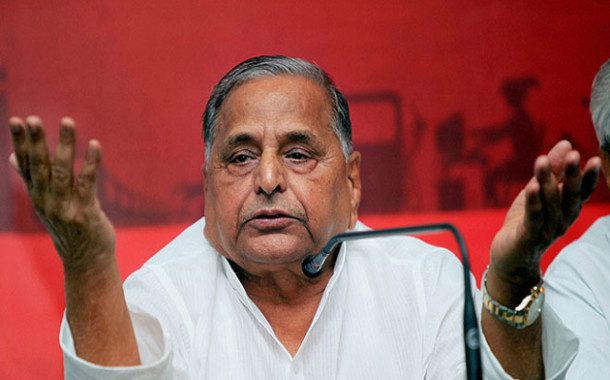



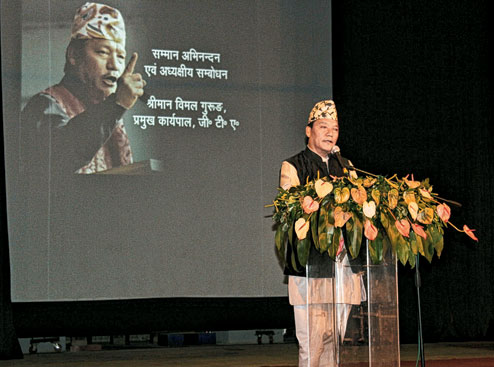
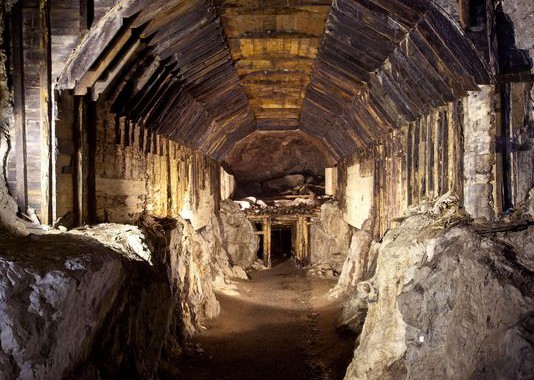
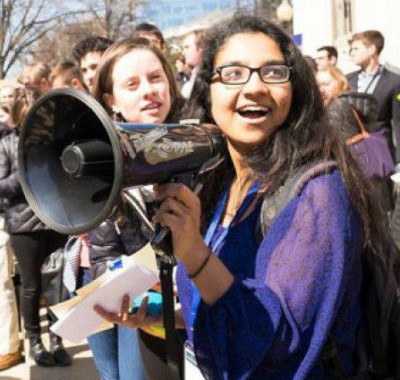
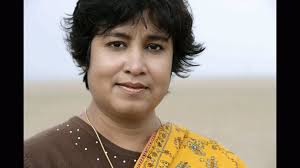
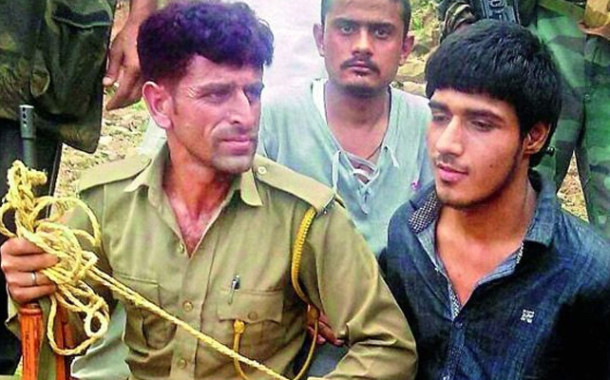
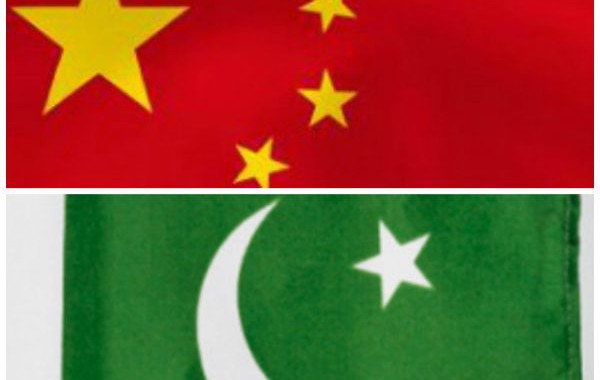





Recent Comments